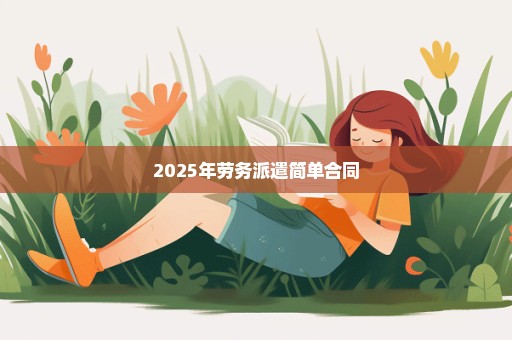虚拟语气与if条件句的区别
你好!我是英语师范学校毕业的。希望我的理解可以给你带来帮助~
其实,虚拟语气和IF条件句最大的区别只有一个。那就是:虚拟语气所表达的事件都是“假设”的,也就是“非真实的”。比如,我说:“要是今天天气好的话,我们就可以出去玩了。”这句话就需要用虚拟语气来翻译。而if条件句,它仅仅起的是条件作用。举个例子说明一下:他再不快点,上学就要迟到了。在这句话中,你应该可以看出,“他”还没有迟到。但是“他”快要迟到了,这时,这句话的条件就是“快点”,如果他快点,就不会迟到,反之就会迟到,是不是这个道理呢?
刚才是用中文举例,现在用英文再翻译一下。在上面一句虚拟语气句中,由于所“假设”的事情是“今天”,在“过去、现在、将来”中属于当中一个,在虚拟语气中,与“现在”事实相反的时候,主句用主语+动词原形,if从句用should+动词原形。那么,翻译时就应该是:If it is fine today,we should go out to play.
而刚才那句条件句就可以翻译为:He will be late for school if he don't hurry up.
由于我时间有限,就不和你多讲了,给你一些参考资料,你可以自己看一下啊~有问题再问我,我一定尽量回复你!
虚拟语气(Subjunctive Mood)这一语法项目是各类英语考试中心测试的重点之一。虚拟语气是一种特殊的动词形式,用来表示说话人所说的话并不是事实,而是一种假设、愿望、怀疑或推测。
Ⅰ用以表示虚拟条件的虚拟语气
⒈ 用if条件从句表示的虚拟条件,是虚拟条件最普通的方式。
① 虚拟现在时表示与现在事实相反的假设,其if 从句的谓语形式用动词的过去式(be 一般用were),主句用would/ should/ could/ might +动词原形,例如:If I were in your position I would marry her.
② 虚拟过去时是表示与过去事实相反的假设,if 从句的谓语形式用过去完成时即had+过去分词,主句用would / should / could / might + have +过去分词,例如:If it had not rained so hard yesterday we could have played tennis.
③ 大多数的虚拟条件句属于上面三种情况的一种,但并不排除存在条件和后果中,一个和现在情况相反,另一个和过去情况相反,例如:If you had followed what the doctor said, you would not have been so painful now.这个句子在高中出现频率颇高。
④ 但是,如果后果用了虚拟语气,而条件却用陈述语气,这种用法是错的。
⒉ 除了表示虚假条件外,if从句还可以表示对将来的推测,由于是将来还没有发生的,所以谈不上是真实的还是虚假的,只能说这个事情发生的可能性有多大。一般情况下,可以用陈述语气的if从句来表示对一个未来事实的推测,这个事实是完全可能发生的。If从句的谓语形式用一般过去式或用were to / should +动词原形,主句用would / should /could/ might +动词原形,例如:Jean doesn't want to work right away because she thinks that if she were to get a job she probably wouldn't be able to see her friends very often.(1996年1月四级第44题)
⒊ 有时可以把含有助动词、情态动词、be或have的虚拟条件句中的连词if 省去,而将had , should, were 等词提到主语之前,即用倒装结构,这时候,如果出现not等否定词,否定词需放在主语后面。这种结构在口语中很少使用,但频频出现在各类考试中出现,例如:If it had not rained so hard yesterday we could have played tennis.→Had it not rained so hard yesterday, we could have played tennis.
⒋ 大多数的虚拟条件通过上面所讲的两种方法表达,但在个别句子中也可以通过介词without和介词短语but for表达,副词otherwise等表达出来。例如:We didn't know his telephone number; otherwise we would have telephoned him.(1995年6月四级第46题)值得注意的是,包含but for的句子,谓语动词必定要用虚拟形式,但包含without等短语的句子,谓语动词未必一定要用虚拟语气。
⒌ 有时虚拟条件不是明确地表达出来,而在蕴含在用but引导的从句里,于是便出现了有谓语动词是虚拟语气的主句加上谓语动词是陈述语气的but从句构成的并列复合句,例如I would have hung you but the telephone was out of order.在这样的句子里,如果主句没有用虚拟语气,或者从句用了虚拟语气,都是错的。
Ⅱ用在宾语从句中的虚拟语气
⒈ 在表示愿望的动词wish后的宾语从句中,需用虚拟语气。(wish后的that 常省略),根据主句时态,从句谓语时态相应退后一位,例如:How she wished his family could go with him.
⒉ 在具有愿望、请求、建议、命令等主观意愿的动词(desire, demand, advice, insist, require, suggest, propose, order, recommend, decide …) 后的宾语从句中需用虚拟语气。谓语动词用(should) +动词原形。值得注意的是,如果宾语从句的动词是否定的,否定词not的位置应在动词之前,而不是动词之后。例如:The head nurse insisted that the patient not be move.另外,如suggest表达“暗示”,insist表示“坚持某种说法”时,后面的从句不用虚拟语气,例如:Her pale face suggests that she is ill.或He insisted that he did not kill the boy.
除此之外,上述动词也要求用虚拟式
① 在It is+上述动词的过去分词,其后所跟的主语从句中,如It is suggested that pupils wear school uniforms.
② 在上述动词相应的名词形式作主语+连系动词,其后的表语从句中,例如His suggestion was that classed be re-scheduled.
③ 在对上述动词相应的名词进行解释的同位语从句中,如:The workers raised the demand that their pay be increased to cope with the inflation.
⒊ would (had)rather , would sooner也用来表达主观愿望,它们之后的宾语从句中需用虚拟语气。谓语动词用过去式表示现在或将来,用过去完成式表示与过去事实相反,例如:I would rather he went right now.
Ⅲ其他形式的虚拟语气
⒈ it is +necessary等形容词后,that主语从句中虚拟形式使用,这类形容词包括necessary, important, essential, imperative, urgent, preferable, vital, advisable等,例如It is necessary that you listen to the teacher carefully.或者It is essential that you be able to pronounce every single word correctly.
⒉ 在It's (high/about) time 之后的定语从句中需用虚拟语气。谓语动词用过去式,例如It is high time that you went to school
⒊ 虚拟语气在as if / as though 引导的方式状语从句中的应用(谓语动词形式与wish后的宾语从句基本相同)表示与现在事实相反或对现在情况有怀疑,谓语动词用过去式。例如:He felt as if he alone were responsible for what had happened. 表示过去想象中的动作或情况,谓语动词用过去完成式。
⒋ 在lest 引导的状语从句中,谓语动词多用虚拟语气,(should )+ 动词原形。例如: The mad man was put in the soft-padded cell lest he injure himself.(1998年1月四级第38题)
⒌ 在if only 引起的感叹句中需用虚拟语气。谓语动词用过去式或过去完成式。例如: Look at the terrible situation I am in! if only I had followed your advice.
虚拟语气是一种动词形式,表示说话人的一种愿望,假设,怀疑,猜测, 建议等含义,虚拟语气所表示的含义不是客观存在的事实。
If I were you, I'd take them away.
如果我是你的话,我就会带走他们。
If I had met Li Hua, I could had told him.
如果我碰见了李华,我就告诉了他了。
If I had time. I could come to help you.
如果我有时间,我会来帮助你的。
He suggested that our class should be divided into five groups.
他建议说我们的班应该分成五个小组。
He speaks to us as if he had been there.
他给我们讲的好象他去过那儿。
虚拟语气的用法
1) 虚拟语气用在简单句中,表示祝愿,命令。
May you be happy.
祝你幸福。
May you have a good time.
祝愿你玩的痛快。
May the friendship between us last long.
祝愿我们的友情天长地久。
Have a good journey!
祝愿你旅途愉快!
You go out!
你出去!
2) 虚拟语气用在宾语从句中。动词 wish, suggest,order,insist, propose,等词后面的宾语从句表示的是一种虚拟语气, 宾语从句中的动词动作表示的只是一种愿望,要求。
I wish she would be on my side.

我希望她能站在我一边。
I wish I could help him.
我希望我能帮助他。
He insisted that all of us should be there on time by any means.
他坚持要我们大家想尽办法按时去那儿。
动词 demand, suggest, order, insist, propose 后面的从句中,"should" 可以省略。
The teacher suggested that we (should) clean the blackboard after class.
老师建议我们课后把黑板擦了。
He ordered that the students wash the clothes every week by themselves.
他要求学生每周都要自己洗衣服。
3) 虚拟语气用在主语从句中。
在句型 "It is important (necessary, strange, natural) that .... " 中,that 后面的从句中的谓语动词用: should + 动词原形
It's necessary that we should have a walk now.
我们有必要出去散散步。
It's natural that she should do so.
她这样做是很自然的。
It's important that we should take good care of the patient.
重要的是我们要照顾好病人。
4) 虚拟语气用在状语从句中。
虚拟语气最多地用在表示条件的状语从句和表示结果的主句中。在表示与事实相反的虚拟语气时,动词有三种时态形式,即现在,过去和将来。
与现在事实相反的:
条件从句 结果从句
If I (we,you,he,they)+ 动词过去式.. if I (he,she) were... I (we) should + 动词原形。 He (you,they) would + 动词原形。
与过去事实相反的:
条件从句 结果从句
If I(we,you,he,they)+ had + 过去分词 I(we)should + have+ 过去分词。He (you,they) would + have + 过去分词。
If I were you, I should buy it.
如果我是你,我就买了它。
If I had time, I would study French.
如果我有时间,我会学习法语的。
If she knew English,she would not ask me for help.
如果她懂英语的话,她不会找我帮忙的。
If you had got up earlier, you could have caught the train.
如果你早一点起床,就会赶上火车的。
If it were fine tomorrow,I would go shopping.
如果明天天气好,我就去买东西。
有关虚拟语气的几个问题:
1) 有时if引导的状语从句可以省略 if,而把从句中的动词 were, had 或 should 移到主语前面。
Were she younger, she would do it .
如果她年青点, 她就会干的。
Had he known her address, he would had gone to visite her.
如果他知道她的地址,他会去看她的。
2) 有时表示虚拟语气的条件从句或者主句都可以省略,而只剩下一个主句或者一个条件从句。
I could help you.
我本来可以帮助你。
If I had time.
我要有时间该多好啊。
She should have come to the party.
她应该来参加聚会。
If he had much more money.
如果他有更多的钱就能...。
3) 虚拟语气中,条件从句的动词动作可以和主句的动词动作时态不一致。
If they had studied hard, they could do it easily now.
如果他们以前努力学习的话,现在干的就会容易些。
If he had not taken my advice, he wouldn't do it much better like this.
If这个词在引导宾语从句和状语从句的时态时反差很大,很可能是因为把if引导的宾语从句和状语从句的知识点混淆了。
if引导宾语从句时表“是否”,引导状语从句时表“假如”,相应的主句和从句的时态也会有不同。
1、用于引导条件状语从句,意为“如果”;引导名词性从句,意为“是否”。有时若没有上下文可能产生歧义。如:
Write to tell me if you love her.
可理解为:如果你爱她,请写信告诉我。
也可理解为:请写信告诉我你是否爱她。
2、引导条件状语从句要用一般现在时表示将来,而引导名词性从句则没有此限制。如:
I don’t know if he will come. But if he comes, I’ll tell you. 我不知道他是否来,但是如果他来,我就告诉你。
有时表示条件的 if之后可能用 will, 但那不是将来时态,而是表示意愿或委婉的请求(此处的 will是情态动词)。如:
If you won’t come, I’ll go myself. 如果你不愿意去,那我就自己去。
I’ll pay for the hotel, if you will for the food. 如果你愿付伙食钱,我就来付旅馆钱。
注意,这类句子的翻译有时比较灵活。如:
If you will follow me, I’ll show you the way. 请跟我来,我给你指路。
If you will sit down for a few moments, I’ll tell the manager you’re here. 请稍坐,我这就通知经理说您来了。
3、在 if 引导的条件从句里,当主句主语与从句主语一致时,且从句谓语部分含有动词be时,有时可省略从句的主语和动词be。如:
He will come if (he is) asked. 他如被邀就会来。
Send the goods now if (they are) ready. 货物如已备好,请即送来。
If (you are) in doubt, ask at your local library. 若有疑问,可在你当地图书馆询问。
If (it is) true, this will cause us a lot of trouble. 这事若是事实,它将给我们造成许多麻烦。
If (he was) found guilty, Jones could face up to 20 years in jail. 如果被判有罪,琼斯可能面临长达20年的监禁。
在这类省略结构中,有的已构成固定结构,如if any, if necessary, if possible, if not, if so 等。如:
There is little water, if any. 即使有水,也非常少。
If necessary, ring me at home. 如果必要,可往我家里打电话。
If possible, I wish to go there next summer. 如果可能,我希望明年夏天去。
He may be busy. If so, I’ll call later. If not, can I see him now? 他可能忙,如是这样,我以后再来拜访。他如不忙,我现在可以见他吗?
4、若要表示与事实相反的假设,if引出的条件从句以及相应的主句则用虚拟语气,具体格式为:
(1) 与现在事实相反:主句用would (should, could, might) +v.,从句动词用过去式(be 通常用 were)。如:
If you took a taxi,you’d get there quicker. 如果你坐出租车去,你可以快一点到那里。
If I knew her number I could ring her up. 要是我知道她的电话号码,我就可以给她打电话了。
(2) 与将来事实相反:主句用would (should, could, might) +v.,从句动词用过去式(be 通常用were)或用 should+动词原形或 were to+动词原形。如:
If it rained tomorrow, I would stay at home. 要是明天下雨,我就呆在家里。
If it should be necessary, I could come at six. 如果有必要,我可以在6点钟来。
从句谓语若为 should+动词原形,主句谓语有时可用陈述语气。如:
If he should call, tell him I’ll ring back. 万一他打电话来,告诉他我给他回电话。
If I should see him, I’ll ask him to ring you. 万一我能见到他,我就叫他给你打电话。
(3)与过去事实相反:主句用would (should, could, might) +have+过去分词,从句用过去完成时。如:
If I’d left sooner, I’d have been on time. 要是我早点动身,我就准时到了。
If he had read any of those books he would have known the answer. 他假若看了这些书中的任何一本, 就知道答案了。
(4) if only(但愿),as if(似乎,好像)也常与虚拟语气连用。如:
If only I weren’t so nervous. 但愿我不这样紧张。
If only I had listened to my parents! 我要是听了我父母的话就好了。
扩展资料:
条件状语从句引导词:
if(如果),unless(除非),if only(只要,但愿),only if(只有),in case(万一),suppose/supposing(that)(假设),provided/providing(that)(只要,假若),on condition that(要是,在...条件下),so/as long as(只要),(let's/let us)say(假设)
if only和only if的区别:
1、If only
If only?表示的是一种假想、假设,后面跟的是虚拟语气,表示与事实相反的假设。
例句:
If only I had more money, I could by some new clothes.
要是我有更多的钱就好了,这样我就可以买些新衣服了。
2、Only if
Only if?后面跟条件状语从句,用陈述句语序,后半句话用部分倒装。
例句:
Only if you pass the exam, will you have a good holiday.
你只有通过了这个考试,才能度过一个愉快的假期。
参考资料:
百度百科——if
鹏仔微信 15129739599 鹏仔QQ344225443 鹏仔前端 pjxi.com 共享博客 sharedbk.com
图片声明:本站部分配图来自网络。本站只作为美观性配图使用,无任何非法侵犯第三方意图,一切解释权归图片著作权方,本站不承担任何责任。如有恶意碰瓷者,必当奉陪到底严惩不贷!
 百科狗
百科狗


